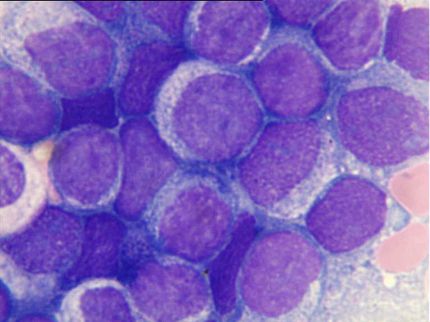GPC Biotech Announces Publication on Use of LeadCode(TM) to Scan the Proteome for Targets of Small Molecule Kinase Inhibitors
Anzeigen
Martinsried/Munich (Germany) and Waltham/Boston, Mass. (USA). GPC Biotech AG announced the publication of data on its proprietary drug-target interaction technology, LeadCode(TM), in the peer-reviewed journal, Chemistry and Biology.
"The data published today validate the ability of LeadCode(TM) to effectively identify and characterize drug-target interactions," said Nikolai Kley, Ph.D., Vice President, Functional Genomics and Proteomics and Head of Research/Waltham. "We believe that the utilization of this technology can lead to a greater understanding of a drug and what it does in the body. With this knowledge, promising drugs can be optimized, new potential applications for existing drugs may be identified, and the risk involved in development may be decreased."
Human protein kinases represent a family of over 500 enzymes that are attractive drug targets for various therapeutic areas, including cancer. There are several marketed drugs and compounds in clinical development that are inhibitors of protein kinases. In the study published today, LeadCode(TM) was applied to several cyclin-dependent kinase (Cdk) inhibitors, all well-characterized small molecules. GPC Biotech has a program to develop Cdk inhibitors as anticancer drugs.
Utilization of LeadCode(TM) enabled scanning of an inhibitor target profile across essentially the entire universe of human proteins. The study results showed that, for all of the Cdk inhibitors analyzed, known targets - i.e., cyclin-dependent kinases - were identified. In addition, novel Cdk-like targets and/or unrelated kinase targets were identified for all inhibitors. Most of the novel targets could be confirmed in at least a second, independent assay. LeadCode(TM) was shown to be highly sensitive and specific, able to detect interactions at a level of general interest to the biopharmaceutical industry.
LeadCode(TM) is believed to offer advantages over other mechanism-of-action technologies. LeadCode(TM) measures drug-protein interactions in living cells, allowing a fast and efficient evaluation of the potential drug mechanisms-of-action in a biological system. Drug target interactions can be detected without the need to establish in vitro assays. Additionally, this technology allows the genome to be scanned for potential compound-binding proteins at sufficient sensitivity to detect even weak drug-target interactions. This is important since these interactions are often responsible for toxicities or side effects.
LeadCode(TM) can be used to find potentially important new targets for a drug. The drug may then be further optimized against the most promising targets that have been identified. For example, by making small changes to a molecule's structure, a new compound may be created that is less toxic and/or more efficacious than the original drug.




































